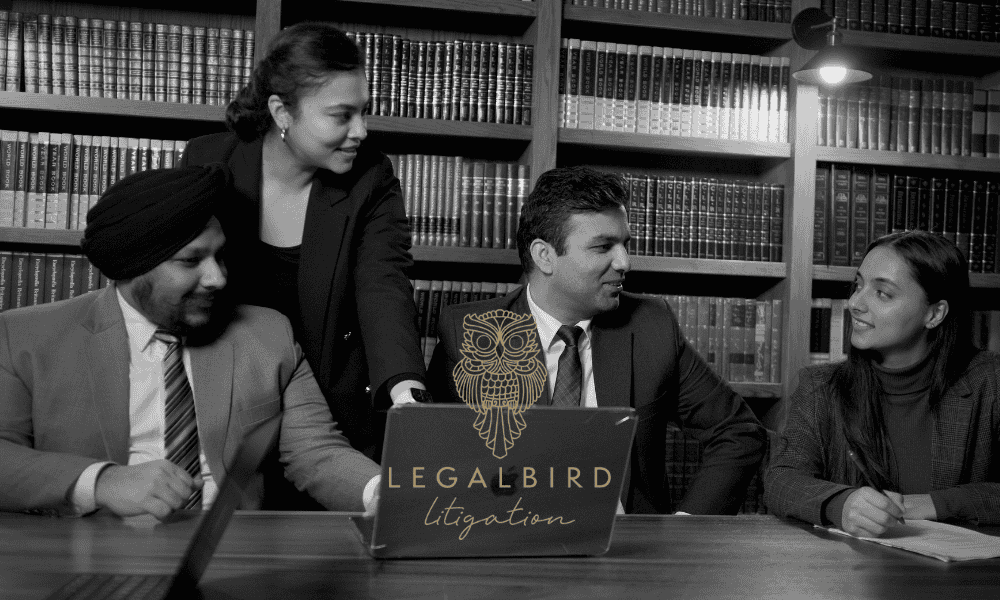
Bank of Montreal v. Khan: Lessons from a British Columbia Debt Litigation Case
On August 12, 2025, the Supreme Court of British Columbia released its decision in Bank of Montreal v. Khan, 2025 BCSC 1545, a debt litigation case involving the enforceability of personal guarantees on business loans. Justice S. Ramsay dismissed the Bank of Montreal’s summary trial application, finding that conflicting evidence and credibility issues required a full trial.
The case was argued in part by Harjinder Singh, an associate at Legalbird a British Columbia law firm known for its work in family and civil litigation. This judgment highlights the importance of independent legal advice, the risks of personal guarantees, and the limits of summary trial proceedings in B.C. courts.
Background of the Case
The defendant, Mohammed Shaheed Khan, was the sole director of two companies that borrowed nearly $435,000 from the Bank of Montreal. He signed personal guarantees for the loans. When the companies defaulted and went into receivership, the Bank sought repayment of approximately $438,000 plus interest directly from Mr. Khan.
Mr. Khan did not dispute signing the guarantees or the amount owed but raised several defences. He argued that the guarantees were unenforceable because the Bank did not ensure he had independent legal advice and that he misunderstood the nature of the documents, believing he was signing only as a corporate director.
The Bank of Montreal’s Summary Trial Application
The Bank of Montreal attempted to resolve the case through summary trial under Rule 9-7 of the Supreme Court Civil Rules. The Bank argued that the case was a straightforward debt recovery matter and that there were no genuine issues requiring a full trial.
It relied heavily on affidavit evidence describing its usual practice of requiring personal guarantees. The Bank also alleged that Mr. Khan falsified an email purporting to show that a Bank representative told him a personal guarantee was unnecessary, urging the Court to reject his entire defence as not credible.

The Defendant’s Defence and the Importance of Independent Legal Advice in British Columbia
Mr. Khan’s defence was built around two key arguments:
- Lack of Independent Legal Advice (ILA): He claimed the Bank never advised him to obtain independent legal advice before signing.
- Non Est Factum: He argued that he misunderstood the nature of the guarantees, believing they were corporate obligations rather than personal liabilities.
These issues, Mr. Khan argued, could not be fairly resolved on conflicting affidavits without cross-examination and a full trial.
Conflicting Evidence and Questions of Credibility
The central dispute involved an email attached to Mr. Khan’s affidavit. He claimed it came from Bank employee Mr. Cheung, stating that no personal guarantee was required.
Mr. Cheung denied writing the email and testified that it contained irregularities, including misspelt names, unusual formatting, and use of an incorrect email address. The Bank argued this demonstrated falsification.
While Justice Ramsay acknowledged concerns about the email’s authenticity, he declined to dismiss Mr. Khan’s entire affidavit. He noted that credibility findings are not “all or nothing” and that some aspects of Mr. Khan’s evidence remained unanswered by the Bank’s witnesses.
Why the Court Rejected Summary Trial
Justice Ramsay concluded the case was not appropriate for summary trial, citing several reasons:
- Credibility at the Core: Conflicting accounts required cross-examination of witnesses.
- Incomplete Evidence: The Bank did not present evidence from all employees who interacted with Mr. Khan.
- Proportionality Considerations: The amount at stake was significant for an individual debtor, and fairness outweighed efficiency.
- No Urgency: There was no pressing reason to shortcut the process through summary trial.
The Court referenced cases such as Inspiration Management Ltd. v. McDermid St. Lawrence Ltd. and Cory v. Cory to reinforce the principle that summary trial is inappropriate when the Court cannot confidently resolve factual disputes on affidavit evidence alone.
Outcome of the Judgment
The Court dismissed the Bank of Montreal’s application for summary trial, ordering costs in the cause. The matter will now proceed to a full trial where issues of credibility, witness testimony, and documentary evidence can be fully tested.
This ruling, argued in part by Legalbird’s litigation team, underscores how British Columbia courts balance efficiency against fairness in debt disputes involving personal guarantees.
Key Takeaways for Businesses and Individuals in British Columbia
This decision offers important lessons for lenders, borrowers, and guarantors:
- Independent Legal Advice Protects Both Sides: Ensuring guarantors receive ILA strengthens enforceability and reduces disputes.
- Summary Trials Have Clear Limits: When credibility and conflicting evidence are central, courts will favour full trials.
- Document Authenticity is Critical: Suspicions of falsification complicate proceedings and increase costs.
- Proportionality Matters: Courts consider the financial and personal impact of debt claims when deciding procedure.
The Supreme Court of British Columbia’s decision in Bank of Montreal v. Khan illustrates the limits of summary trial in debt litigation and highlights the risks of relying on personal guarantees without independent advice. For individuals and businesses, it is a reminder of the importance of clear communication, proper documentation, and legal representation.
Legalbird’s involvement in this case demonstrates its commitment to protecting clients in complex debt and civil litigation matters across British Columbia.

